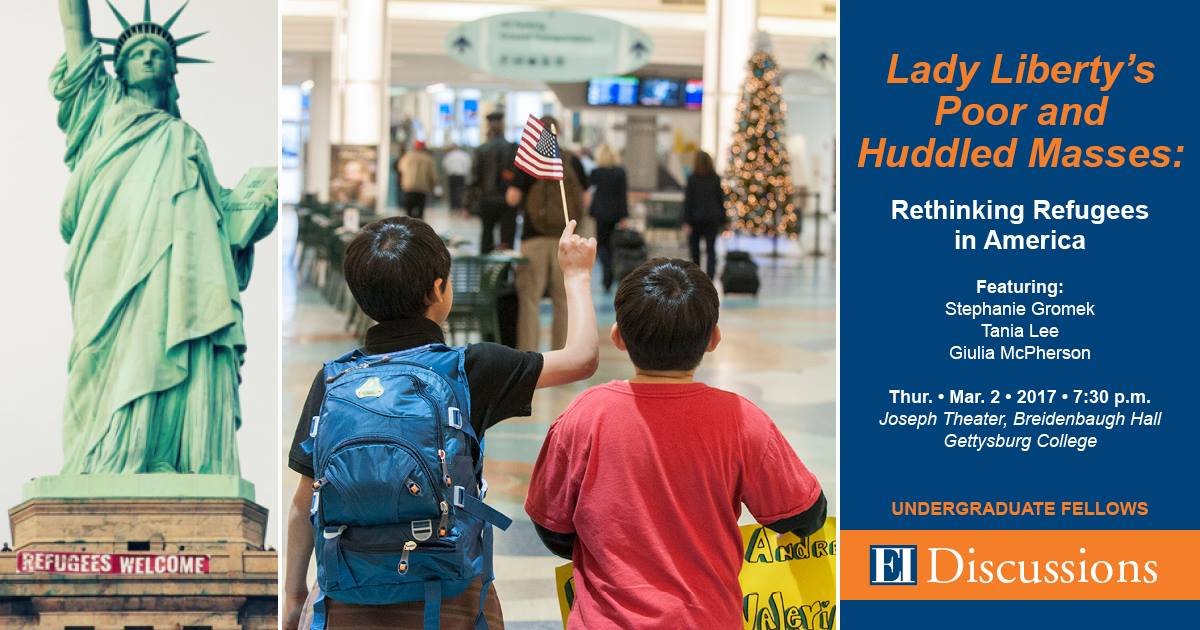EI panel explores effect of Trump’s actions on immigration
By Brendan Salyards, Contributing Writer
The Eisenhower Institute Undergraduate Fellows held a panel Thursday on the topic of immigration as they continue their ongoing study of refugee resettlement in the United States. This, the third in their series this year, was titled “Lady Liberty’s Poor and Huddled Masses: Rethinking Refugees in America.”
The bulk of the questions in the moderated portion of the panel pertained to recent actions by the Trump administration to curtail immigration from seven Muslim-majority countries. Panelists agreed that many of the actions hindered their mission of settling refugees in the United States.
Panelists included Stephanie Gromek, the Community Service Coordinator for Church World Services in Lancaster; Tania Lee, an information, communications, technology (ICT) practitioner currently working as a freelancer for Cultural Orientation Resources Exchange; and Giulia McPherson, the Director of Advocacy and Operations at Jesuit Refugee Service/USA.
Questions covered topics such as the recent immigration ban itself, the rhetoric surrounding immigration and refugee resettlement, and the detainment of public figures at airports as they try to enter the country.
The final question of the moderated portion of the panel concerned the use of biometrics as a means of keeping track of refugee services. Lee explained the advantages that such technology provides in ensuring that benefits are allocated accurately and commented on the potential problems of ensuring that such information remains uncompromised. She also shared some of the problems that NGOs face is in expanding the use of biometrics, which include laws concerning where information can be stored and a lack of funding to support the use of such technology.
The audience questions probed the work of NGOs more directly.
They concerned the advantages and disadvantages of a privately-funded refugee resettlement program, the process of resettlement, the effects of a scale back in US foreign aid, and actions that individuals can take to assist organizations involved in resettlement.
The panelists agreed that the proposed budget cuts to foreign aid would negatively affect efforts to resettle refugees in the United States and shared stories of specific impacts such cuts could have.
One interesting discussion point surrounded the possibility of allowing privately-funded organizations to work in the field of resettlement, as is permitted in Canada. This private system existed in the United States before the current public-private partnership (the government provides limited money to organizations that resettle refugees) that exists today was implemented. No such move is on the horizon.
The panel concluded with panelists appealing to attendees to raise their voices in advocacy for refugees and the organizations that resettle them.
Piper O’Keefe ’17, an Undergraduate Fellow, said, “The panel provided an especially interesting perspective on the role of NGOs in the refugee resettlement process. Considering the negative rhetoric surrounding refugees coming from the administration, the roles played by these organizations and individuals in general is more vital than ever to ensure a welcoming community for all in our nation.”

